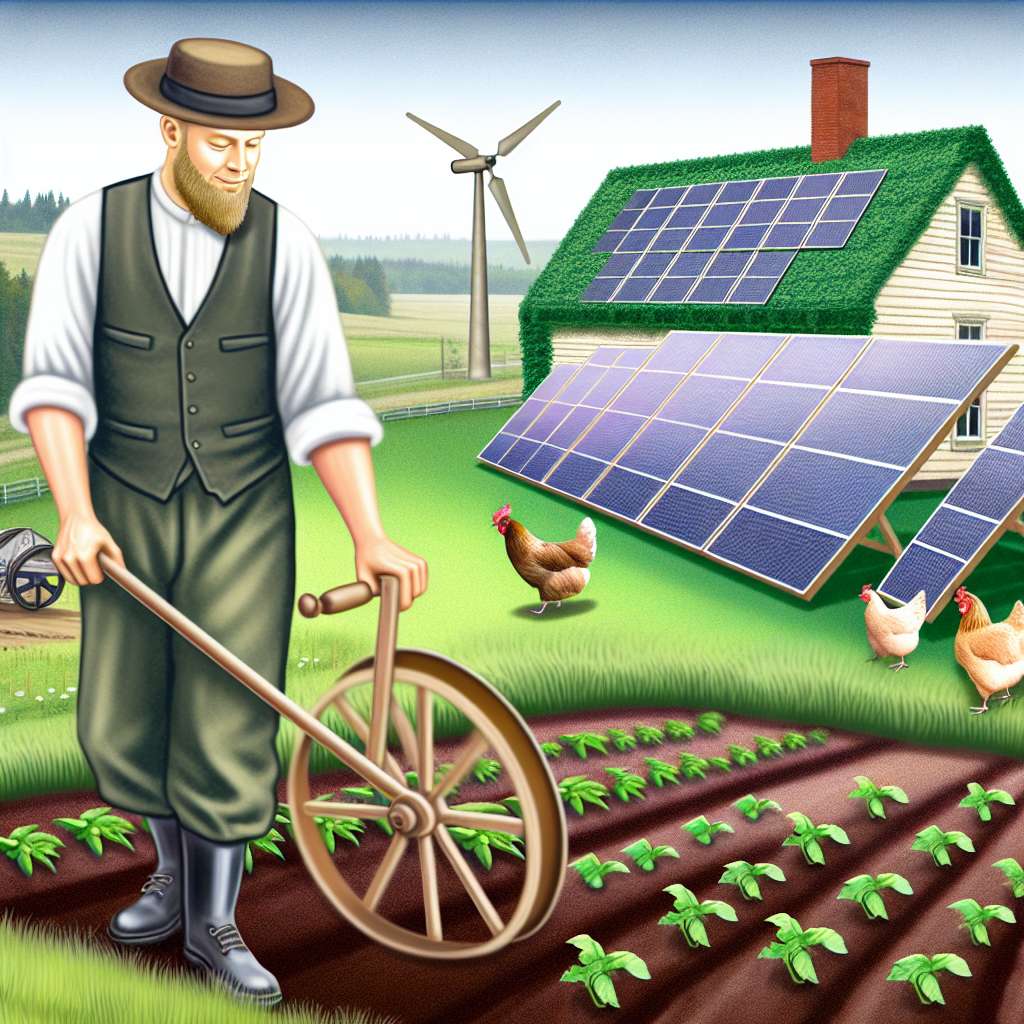Understanding the Concept of Sustainable Farming
Defining Sustainable Farming
Sustainable farming refers to agricultural practices that protect the environment.
It emphasizes the long-term health of the ecosystem.
This approach balances economic viability with environmental care.
Principles of Sustainable Farming
One key principle is maintaining soil health.
Healthy soil produces better crops while preventing erosion.
Additionally, sustainable farming promotes biodiversity.
This diversity sustains ecosystems and increases resilience.
Water conservation is also crucial in these practices.
Efficient water use preserves this essential resource.
Benefits of Sustainable Farming
Sustainable farming enhances food security.
It offers a stable supply of healthy food for communities.
Moreover, it improves local economies by supporting small farms.
These farms often provide fresh produce to nearby regions.
Consequently, sustainable practices contribute to reduced carbon footprints.
Challenges Encountered
Farmers face numerous challenges in implementing sustainable practices.
These include financial constraints and lack of education.
Furthermore, market access can hinder sustainable farming operations.
Many farmers struggle to compete with industrial farming methods.
Key Challenges in Transitioning from Conventional to Sustainable Practices
Resistance to Change
Many farmers exhibit resistance to changing established practices.
They often prefer the familiarity of conventional methods.
This resistance can hinder the adoption of sustainable techniques.
Furthermore, cultural norms play a significant role in this reluctance.
Financial Constraints
Implementing sustainable farming solutions often requires significant financial investment.
Many farmers struggle to find the necessary funds for transitions.
Initial costs for organic fertilizers and equipment can be prohibitive.
Unlock Your Career Potential
Visualize a clear path to success with our tailored Career Consulting service. Personalized insights in just 1-3 days.
Get StartedAdditionally, the return on investment may take years to materialize.
Knowledge and Education Gaps
Farmers frequently lack access to education on sustainable practices.
Without proper training, they may feel ill-equipped to change methods.
Moreover, misinformation can spread quickly, complicating the transition.
Access to workshops and resources is critical for closing these gaps.
Market Access and Demand
Sustainable products often require different marketing strategies.
Farmers may find it challenging to access markets for their products.
Additionally, consumer awareness about sustainable products can be limited.
Establishing direct relationships with buyers can be beneficial.
Regulatory and Policy Challenges
Farmers may face regulatory hurdles when transitioning to sustainable practices.
Policies often favor conventional methods, creating biases.
Moreover, there can be a lack of incentives for sustainable farming.
Clarifying regulations is vital for encouraging sustainable transitions.
Environmental Uncertainties
Climate change poses significant uncertainties for farmers.
Unpredictable weather patterns impact crop yields and sustainability.
Additionally, pests and diseases can evolve rapidly in changing climates.
Farmers need strategies to adapt to these environmental challenges.
Economic Barriers
Cost Implications
Sustainable farming often requires significant initial investments.
Farmers may need to purchase new equipment or technology.
For instance, switching to organic practices increases costs for seeds and supplies.
Many farmers face tight budgets, making these investments challenging.
Consequently, some may hesitate to adopt sustainable methods.
Meanwhile, competition in the market can further strain resources.
Financial Risks
Investing in sustainable farming includes inherent financial risks.
Returns on investment may not be immediate or guaranteed.
Farmers might experience fluctuations in market demand for sustainable products.
Additionally, unexpected environmental conditions can lead to crop failures.
Such issues may leave farmers burdened with debt.
Moreover, traditional financing options might not support innovative practices.
Access to Resources
Access to financial resources poses a challenge for many farmers.
Farmers often struggle to obtain loans or grants for sustainable initiatives.
Many lending institutions are unfamiliar with sustainable agriculture practices.
As a result, they may view these investments as risky.
Consequently, farmers may need to rely on personal savings or family support.
Market Pressures
Market dynamics can discourage farmers from adopting sustainable solutions.
For instance, consumers often prioritize price over sustainability.
This behavior can pressure farmers to stick with conventional farming methods.
Moreover, the lack of consumer education on sustainability plays a role.
Many consumers remain unaware of the long-term benefits of sustainable farming.
Therefore, farmers may not receive fair compensation for sustainable products.
Learn More: Key Skills Needed to Excel as a Seed Technologist
Socio-Cultural Resistance: Mindset and Community Engagement
Understanding Mindset Shifts
Implementing sustainable farming requires a shift in mindset.
Farmers often resist changes due to fear of the unknown.
This resistance can stem from traditional practices being deeply ingrained.
Moreover, misconceptions about sustainable methods can create barriers.
Importance of Community Engagement
Active community engagement is essential for success.
Farmers must feel supported by their community in adopting new practices.
Building trust and relationships within the community is vital.
Regular workshops and information sessions can facilitate learning.
Collaborative Learning Efforts
Farmers benefit from collaborative learning experiences.
Sharing successes fosters a culture of innovation and improvement.
Peer-led groups can help address common concerns effectively.
Moreover, these groups create a safe space for discussion.
Addressing Cultural Barriers
Cultural norms can significantly impact the adoption of new techniques.
Some communities may prioritize tradition over innovation.
Respect for cultural practices is essential when introducing change.
It is crucial to find ways to integrate new and traditional methods.
Utilizing Local Leaders
Engaging local leaders can enhance community involvement.
These leaders can influence opinions and encourage participation.
They can serve as role models by implementing sustainable practices.
Moreover, their endorsement can lend credibility to new ideas.
Encouraging Feedback and Adaptation
Continuous feedback is vital for effective implementation.
Sustainable farming practices need to evolve based on community experiences.
Listening to farmers’ concerns builds confidence in new methods.
This adaptability ensures solutions remain relevant to local needs.
Explore Further: The Science Behind Tree Pruning and Arborist Expertise
Technical Limitations
Lack of Training and Expertise in New Techniques
Farmers face significant challenges when adopting sustainable farming solutions.
One major challenge is the lack of training available for new agricultural practices.
Many farmers are unfamiliar with innovative sustainable techniques.
This knowledge gap can hinder the effective implementation of these methods.
The Importance of Education and Training
Education plays a crucial role in successful sustainable agriculture.
Farmers need access to workshops and seminars focused on new practices.
Such programs can provide essential knowledge and skills.
Furthermore, mentorship from experienced practitioners can be invaluable.
Bridging the Expertise Gap
Collaboration with agricultural universities can enhance training opportunities.
These institutions can offer research-based solutions to farmers.
Providing online resources also helps reach a wider audience.
In addition, local agricultural extension services can support farmers in their training.
Encouraging Community Engagement
Community initiatives can foster collective learning among farmers.
Farmers can learn from each other’s successes and failures.
As a result, sharing experiences leads to improved practices overall.
Moreover, involvement in local farming cooperatives can build a supportive network.
Overcoming Initial Resistance
Many farmers may initially resist changes due to fear of the unknown.
Addressing these concerns is essential for successful adoption of sustainable practices.
Awareness campaigns can highlight the long-term benefits of sustainable methods.
Success stories from early adopters can motivate others to embrace change.
Learn More: How Arborists Maintain Healthy Trees and Ecosystems
Policy and Regulatory Hurdles
Navigating Government Frameworks
Implementing sustainable farming solutions faces numerous policy challenges.
Government regulations can sometimes hinder innovation in agriculture.
For instance, outdated laws may not accommodate new practices.
Farmers often struggle to understand complex regulations.
Moreover, the lack of uniformity across regions complicates compliance.
Different states may have conflicting agricultural policies.
Access to Funding and Support
Access to financial support is crucial for sustainable farming initiatives.
However, funding often favors traditional farming methods.
This bias limits farmers’ ability to adopt eco-friendly practices.
Additionally, grant application processes can be lengthy and complicated.
Without streamlined access to funding, many innovations stall.
Environmental Regulations and Compliance
Strict environmental regulations can burden farmers.
While these regulations aim to protect ecosystems, they can complicate daily operations.
For example, compliance with water usage laws may require costly adjustments.
Furthermore, constant changes in regulations add to uncertainty.
Farmers must remain informed to stay compliant and avoid penalties.
Collaboration with Government Agencies
Effective collaboration with government agencies is essential.
However, communication gaps often exist between farmers and officials.
Farmers may feel their concerns are overlooked during policy formation.
Establishing regular dialogues can bridge these gaps.
This way, policies can better reflect the needs of sustainable agriculture.
Future Directions for Policy Reform
Future policies must prioritize sustainability in farming practices.
Encouraging public-private partnerships could enhance innovation.
Additionally, simplifying the regulatory framework can help farmers adapt.
Incentives for sustainable practices will attract more participants.
Ultimately, reforming existing policies is essential for progress.
Discover More: How Seed Technologists Support Organic Farming Practices

Environmental Factors: Climate Change and Resource Availability
Impact of Climate Change on Farming
Climate change significantly affects agricultural productivity.
Rising temperatures alter crop yields globally.
Additionally, unpredictable weather patterns challenge traditional farming methods.
For instance, farmers face longer droughts, leading to water scarcity.
Consequently, adapting to these changes is essential for survival.
Availability of Natural Resources
Water resources are increasingly under threat.
Overexploitation worsens this issue in many regions.
Moreover, soil degradation complicates sustainable farming.
Healthy soils are vital for nutrient-rich crops.
Therefore, farmers need to adopt practices that restore soil health.
Shifts in Pest and Disease Dynamics
Climate change also influences pest populations.
As temperatures rise, pests thrive in new areas.
Consequently, farmers must manage new pest dynamics effectively.
Investing in integrated pest management can help combat these challenges.
Additionally, crop diversification enhances resilience against pest outbreaks.
Economic Pressures and Market Fluctuations
Farmers face increasing economic pressures due to climate change.
Market fluctuations impact the profitability of sustainable practices.
To mitigate risks, farmers should engage in local food systems.
Direct marketing can secure better prices for produce.
Ultimately, collaboration with local cooperatives strengthens community resilience.
Technological Innovation and Access
Enhancing Accessibility for Farmers
Access to technology is crucial for sustainable farming.
Farmers often struggle with high costs of modern tools.
However, innovations can significantly reduce these costs.
Government programs can provide essential support.
Grants and subsidies can make advanced technology affordable.
Bridging the Digital Divide
Rural areas frequently lack internet access.
This limitation hinders agricultural development.
Innovative solutions are necessary to overcome these barriers.
For instance, satellite technology can aid remote connectivity.
Mobile apps can offer real-time data to farmers.
Training and Education
Training programs are vital for effective technology use.
Farmers need guidance on using tools effectively.
Local workshops can serve as educational platforms.
Additionally, online resources can facilitate learning.
Organizations should focus on creating user-friendly guides.
Collaboration Across Sectors
Partnerships between tech companies and farmers can boost innovation.
Collaborative efforts can streamline agricultural practices.
Public-private partnerships often yield successful outcomes.
Moreover, sharing knowledge promotes sustainable methods.
Overcoming Resistance to Change
Traditions can create resistance to new technologies.
However, showcasing success stories can build confidence.
Farmers need to see tangible benefits from innovations.
Demonstration projects can highlight successful implementations.
Community involvement fosters acceptance of new practices.
Case Studies: Successful and Unsuccessful Implementation of Sustainable Practices
Successful Implementation: Organic Farming in Green Valley
In Green Valley, a local community shifted to organic farming.
This switch led to higher yields while improving soil health.
Farmers adopted natural pest control methods effectively.
Additionally, they utilized crop rotation to maintain fertility.
The community saw increased revenue due to organic certification.
Delayed Success: The Solar-Powered Greenhouse Project
A solar-powered greenhouse project faced initial delays in Springfield.
Budget constraints limited the installation of essential equipment.
However, overcoming these challenges led to eventual success.
Once fully operational, the greenhouse produced year-round crops.
Moreover, local restaurants embraced the fresh produce, enhancing sales.
Unsuccessful Implementation: Hydroponic Farming in Valley Creek
The Valley Creek hydroponic farm faced significant challenges.
Poor planning resulted in ineffective nutrient management.
Many crops failed to thrive, leading to financial losses.
The lack of skilled labor exacerbated these issues further.
Consequently, the project was deemed unsustainable and closed.
Lessons Learned from Implementation Challenges
Several key lessons emerged from these case studies.
First, proper planning is critical for success.
Second, the community’s involvement can influence project outcomes.
Additionally, training for farmers improves skills and knowledge.
Ultimately, understanding local conditions enhances sustainable practices.




